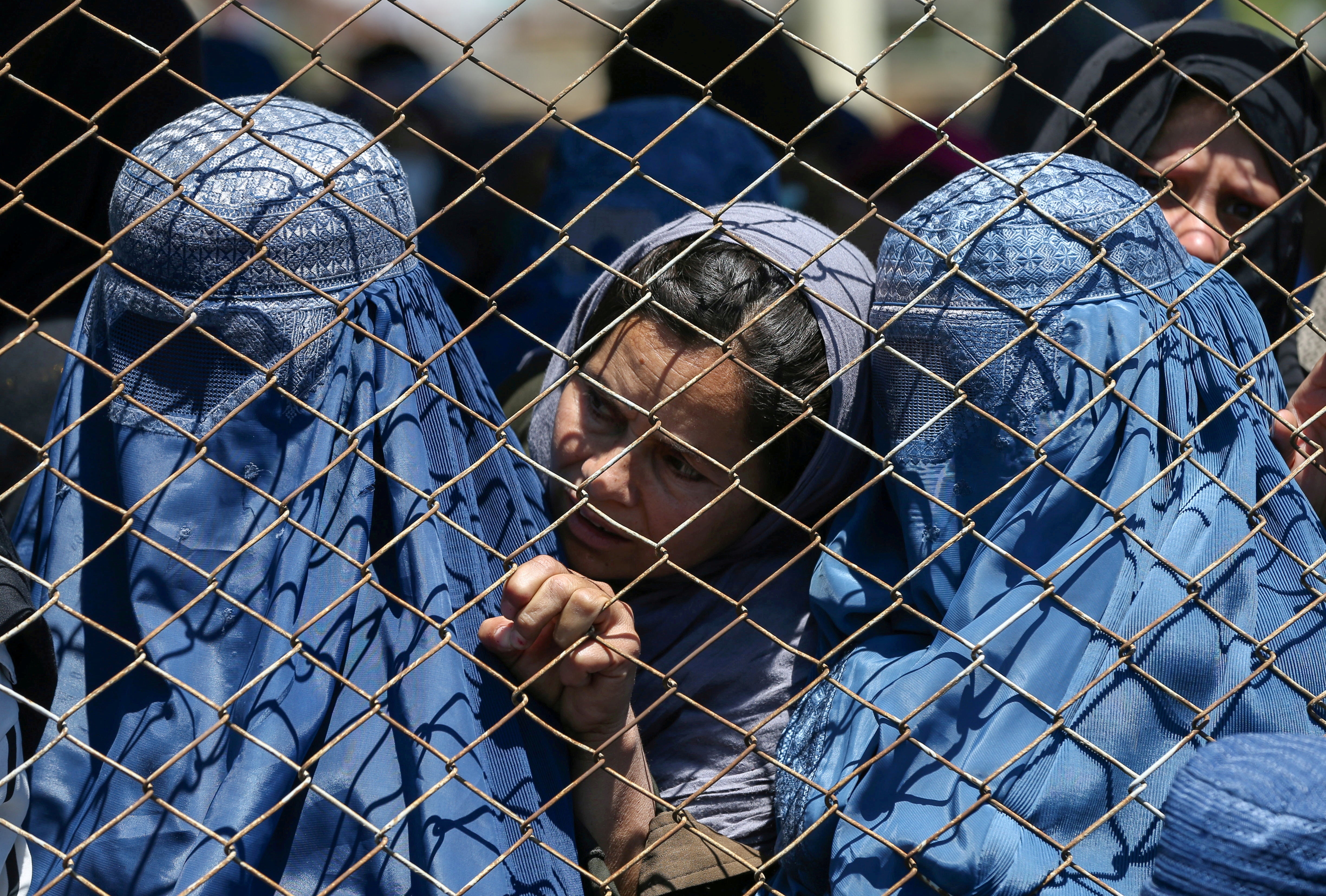The Independent's journalism is supported by our readers. When you purchase through links on our site, we may earn commission.
Taliban urges women to stay home because some of their fighters ‘have not yet been trained’ not to hurt them
Taliban’s fighters have not been trained to ‘not harm or harass women’, says the militant group’s spokesperson

Your support helps us to tell the story
From reproductive rights to climate change to Big Tech, The Independent is on the ground when the story is developing. Whether it's investigating the financials of Elon Musk's pro-Trump PAC or producing our latest documentary, 'The A Word', which shines a light on the American women fighting for reproductive rights, we know how important it is to parse out the facts from the messaging.
At such a critical moment in US history, we need reporters on the ground. Your donation allows us to keep sending journalists to speak to both sides of the story.
The Independent is trusted by Americans across the entire political spectrum. And unlike many other quality news outlets, we choose not to lock Americans out of our reporting and analysis with paywalls. We believe quality journalism should be available to everyone, paid for by those who can afford it.
Your support makes all the difference.The Taliban has said women should stay at home to protect themselves from some of the insurgent group’s armed fighters, who are yet to be trained to not hurt or harass them.
This call for women to not venture out was “temporary,” according to Taliban spokesperson Zabihullah Mujahid. Some experts, however, said a similar statement was used by them when they ruled the country before in 1996.
Mujahid said women in Afghanistan must stay home until a “new procedure” is in place, without mentioning for how long such a measure would continue.
This was being done to protect women from potential harm by Taliban’s fighters who are yet to be trained to “not harm or harass women”, he said.
The new “policy” is in sharp contrast to the lofty promises the Taliban has made, including stating that their new rule over the country will allow girls to attend school and women to work, as long as they wear the hijab.
“We are worried our forces who are new and have not been yet trained very well, may mistreat women,” Mujahid, the Taliban spokesperson, said at a press conference.
“We don’t want our forces, God forbid, to harm or harass women,” he said, in an apparent confirmation that it is not safe for women to step out at the moment.
Mujahid’s statement echoes one made by the Taliban’s cultural affairs committee deputy Ahmadullah Waseq, who said the ultra religious and conservative group does not have a problem with women working as long as they wear a hijab.
However, women should stay home until the situation goes back to normal. “Now it is a military situation,” Waseq told The New York Times.
Fear has crept into thousands of Afghans still in the country who recall the Taliban’s previous rule that began in 1996 and ended in 2001.
Public executions were carried out, including by stoning people to death. Women and girls were forced to wear burqas and were not allowed to leave their homes except in extremely rare circumstances and were always forced to be accompanied by a male guardian.
Anyone found violating these rules was flogged publicly, according to several accounts. There was also a ban on several means of entertainment, including TV and radio.
The Taliban, this time, promises their rule will be different and more accommodating towards women who wish to work and girls who want to attend school, but “under the Islamic law framework.” The insurgents have asked women to join the government and work, but under the framework of the Islamic Sharia law.
Their new claims, however, stand in stark contrast to what has been reported on the ground, amid the current ongoing crisis.
The UN’s high commissioner for human rights on Tuesday released a statement confirming reports of serious violations and human rights abuses, including executions.
These violations include “summary executions of civilians... restrictions on the rights of women, including their right to move around freely and girls’ right to attend schools,” according to the statement.
Several people, fearing the Taliban’s actions, are taking extreme measures to protect women and children. An all-girls school founder set fire to the entire school’s records to protect the girls and their families.
Join our commenting forum
Join thought-provoking conversations, follow other Independent readers and see their replies
Comments